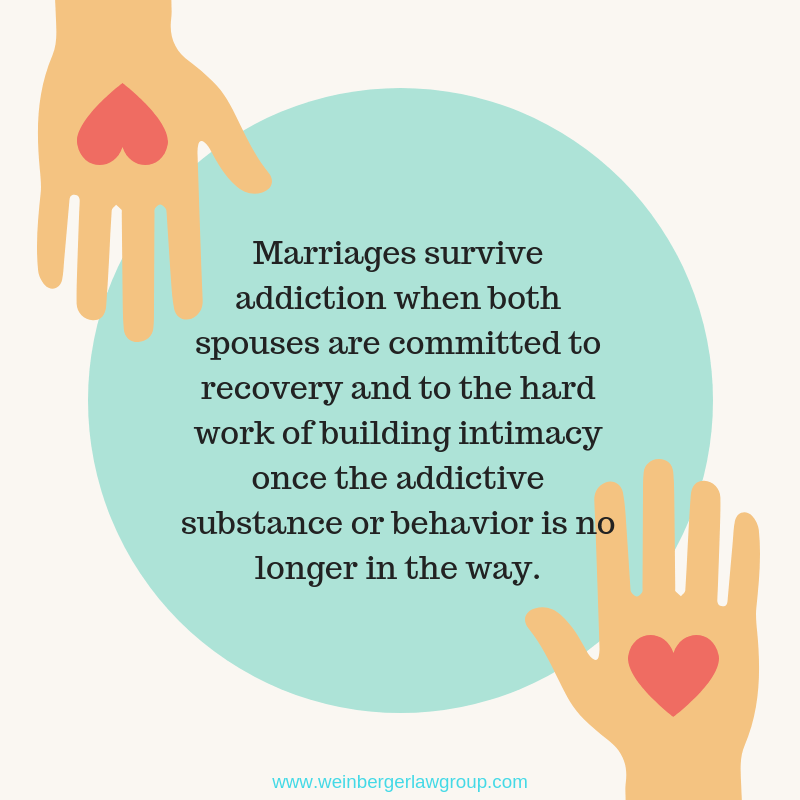3 ways to save your marriage from alcoholism

Anyone who has watched a spouse sink into the depths of alcoholism has had to answer a very stark question: What does this mean for my marriage?
The reality is that almost half (48%) of marriages affected by alcoholism end in divorce.
Common crisis issues in an alcoholic marriage are serious: domestic abuse, job loss due to drinking and resulting financial difficulties, co-dependency, and children put in harm’s way.
These are incredibly difficult problems to surmount and sometimes divorce is inevitable. But when spouses are willing to do the hard work of addiction recovery and rebuilding, there can be hope that a marriage can beat the odds.
Is your marriage one of them? Here are some steps that can help you decide what is best for you.
Put your children’s safety and your own safety first. When alcoholism is a trigger for domestic violence and abuse, your first priority needs to be getting you and your children to safety. Be aware that if you do leave your family home with your kids, you must have a child custody agreement in place or you could face legal consequences. Get your spouse to sign off on a custody plan, or go to the courts. When a co-parent has untreated addiction issues, the courts may temporarily suspend their visiting time with the kids, or agree to a supervised plan if they are in recovery. You can file for temporary child support and alimony, if appropriate, to give you and your children money to live separately from your spouse. Note: filing for divorce is not required to get temporary child support and alimony.
If your spouse assaults you or harasses you, or commits any crime of domestic violence, you are entitled to file for a temporary restraining order for no contact. If you do file for a restraining order, you generally can file for temporary custody and alimony at the same time. Here’s more about keeping children safe in domestic violence situations.
Your spouse must accept responsibility, seek treatment, and get sober. Before anything else can happen to reconcile your relationship, your spouse needs to do to the work of getting — and staying — sober. This isn’t up to you, it’s completely on your spouse to find the motivation and commitment to end their addiction. Your spouse may require in-patient addiction recovery, or find help through a 12-step group or similar program.
Abstaining from alcohol is only one part of recovery. There is much work to be done to address addictive behaviors and to take responsibility for the destruction left in alcoholism’s wake. During this time, options for you include joining a support group for spouses of alcoholics to process your own emotions, address any codependency and help you think clearly. Private therapy for you can also be helpful. There are also support groups for children of alcoholics.
Consider a Reconciliation Agreement. These agreements are a type of post-nuptial agreement, and can be put in place even after divorce is filed. The reconciliation agreement may include terms such as withdrawing divorce papers in exchange for a promise by the alcoholic spouse to remain in alcohol treatment and counseling for as long as needed. Similarly, the agreement could include terms that the alcoholic spouse will give up rights to certain marital assets should they not seek treatment or stay sober, and the divorce proceeds.
These agreements afford comfort to spouses who remain with trust issues after their partner completes treatment. Be sure the agreement is in writing, was reviewed by both spouses, is signed and that both spouses had the chance to have their own attorneys review the document prior to signing.
Whatever the outcome, the hope is that the addicted spouse seeks and receives the help that they need, so that the entire family can move forward and a happy and healthy way. If you are looking for more information regarding legal options, including a reconciliation agreement or filing for divorce, please contact us today to schedule your initial consultation with one of our qualified family law attorneys experienced in divorce here in New Jersey. Call us at 888-888-0919, or please click the button below.
Read More:
Alcohol Addiction & Child Custody: A Dangerous Cocktail




